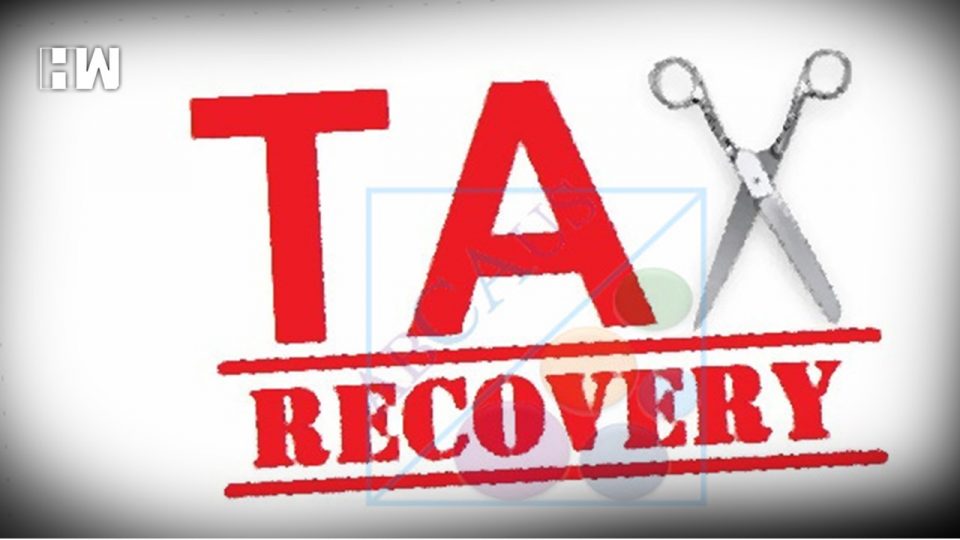It will be extremely unwise for the tax departments to flog a fatigued horse and expect it to run. One recovery ie. of taxes
Mumbai: recent news item says that 22 IRS officers have resigned so far in 2019, unable to bear the inhuman pressures of meeting tax collection targets set for them, by their bosses in Delhi. In 2018, 34 of them had similarly quit and more are expected to put in their papers, as the tax recovery pressures build-up, in the run-up to the next budget and as the financial year 2019-20 progresses. The fact that these top-ranking officers are willing to give up such powerful and prestigious jobs, without even a VRS or a golden handshake, indicates the sheer impossibility of the tax collection targets set for them, and the unbearable stress that they face. These resigning officers are unwilling to henceforth do what the government wants them to do viz. meet their tax collection targets by whatever means, which are bound to be extremely coercive and harsh.
The tax collection scene is dismal this year, with gross tax collection growth in the first half of the FY ie. April-Sept, recording the lowest growth in a decade. It grew by a mere 1.5% as against a reported growth of 8.6% in tax collections, during the same period last year. As against a target growth of 18% indirect tax collections, it has been a mere 4.7% this year, with growth in indirect tax collections being spotty and patchy and even being negative at times, as against a growth target of 17.5%. With the Indian economy continuing to be in a protracted slowdown, which is yet to bottom out, and the sharp corporate tax rate cuts having sacrificed a sum of Rs.1.45 lac crores in taxes, there is no way that the government will be able to meet its target tax collection of Rs.24.60 lac crores this year.
The larger picture of such a poor growth in tax collection growth this year, which is in tandem with the slowdown in the Indian economy and the resignations of IRS officers, is worth analysis.
- Tax collection targets are wrongly set by the government. They seem to have no connection whatsoever with the real economy, on which they are based. If the GDP is growing at a mere rate of 5%, how can you set a tax collection growth target of 18%, even if you factor in getting new taxpayers into the fold? The relevant question is as to which major sector of the economy is booming such as to target such growth in tax collection, is the real question. It seems that the mandarins in the Finance Ministry set these targets, completely disconnected from the ground reality and impose them on the hapless babus in the tax departments.
- With a sharp cut in corporate tax rates and the continued slowdown in the economy, there is no way that the government can meet its tax collection targets, even if the tax departments resort to the most coercive and harsh collection measures, which are wholly unwarranted. If the tax collection targets are not pruned and brought down to realistic levels, you can expect more closure of entities that are unable to bear such measures and the withholding of tax refunds, as the officers are forced to delay them, in order to farcically shore up their tax collections, only causing further hardship to taxpayers, due to blocked cash flows in tax refunds.
- If the economy’s growth rate is buoyant, so will be the growth rate of tax collections. Instead of pressuring tax officers to pursue impossible tax collection targets, the government needs to realize that the solution to tax recovery lies in economic recovery and that’s where it will need to focus and initiate reform measures. The government needs to get it right because so far its measures have not managed to collectively revive confidence in the consumer and the investor, due to which the economy is languishing. The solution to the tax collection crisis thus does not lie in stressing out and hounding the tax officers, but it is in pursuing policies that revive the Indian economy.
- The other reality is that if the senior babus in the government are themselves unable to give a solution to enhancing tax recovery and all that they have in mind is pressuring officers and expecting them to initiate coercive recovery measures, how do they expect the field officers to collect taxes from a slowing economy and distressed taxpayers.
- Any measures to pressurize distressed taxpayers will be counterproductive and will only harm the interests of the economy in the long run. Closed entities do not pay taxes and that is what will happen if the screws are further tightened on the taxpayers.
The reality is that it is the failure of the government to revive the economy’s recovery and recognize it, which results in the failure to meet tax recovery targets. It will be extremely unwise for the tax departments to flog a fatigued horse and expect it to run. One recovery ie. of taxes, depends on the other ie. of the economy.
As an independent media platform, we do not take advertisements from governments and corporate houses. It is you, our readers, who have supported us on our journey to do honest and unbiased journalism. Please contribute, so that we can continue to do the same in future.

